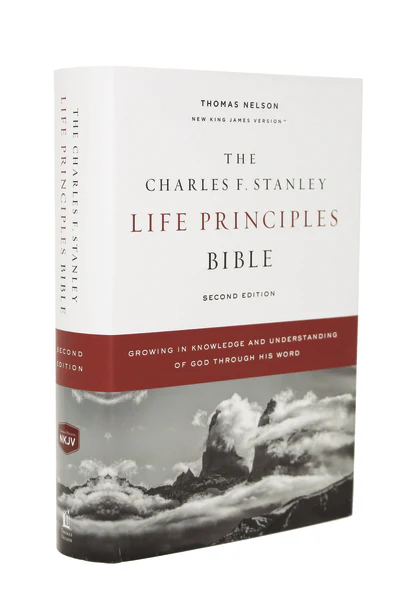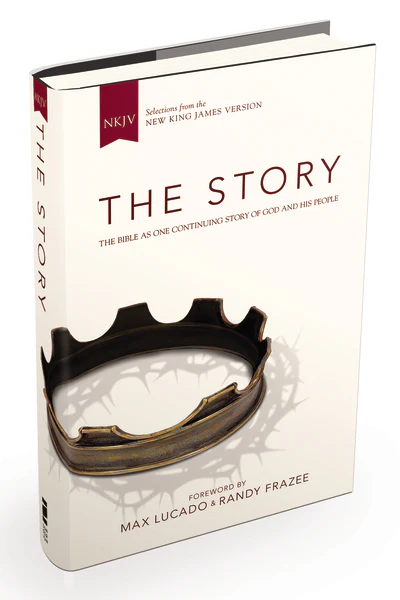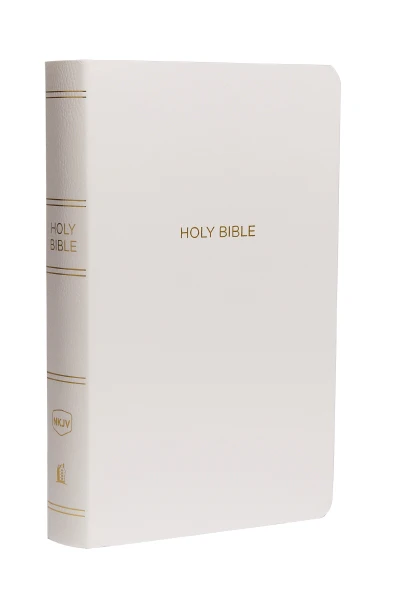Ezra 2
New King James Version
The Captives Who Returned to Jerusalem(A)
2 Now (B)these are the people of the province who came back from the captivity, of those who had been carried away, (C)whom Nebuchadnezzar the king of Babylon had carried away to Babylon, and who returned to Jerusalem and Judah, everyone to his own city.
2 Those who came with Zerubbabel were Jeshua, Nehemiah, [a]Seraiah, [b]Reelaiah, Mordecai, Bilshan, [c]Mispar, Bigvai, [d]Rehum, and Baanah. The number of the men of the people of Israel: 3 the people of Parosh, two thousand one hundred and seventy-two; 4 the people of Shephatiah, three hundred and seventy-two; 5 the people of Arah, (D)seven hundred and seventy-five; 6 the people of (E)Pahath-Moab, of the people of Jeshua and Joab, two thousand eight hundred and twelve; 7 the people of Elam, one thousand two hundred and fifty-four; 8 the people of Zattu, nine hundred and forty-five; 9 the people of Zaccai, seven hundred and sixty; 10 the people of [e]Bani, six hundred and forty-two; 11 the people of Bebai, six hundred and twenty-three; 12 the people of Azgad, one thousand two hundred and twenty-two; 13 the people of Adonikam, six hundred and sixty-six; 14 the people of Bigvai, two thousand and fifty-six; 15 the people of Adin, four hundred and fifty-four; 16 the people of Ater of Hezekiah, ninety-eight; 17 the people of Bezai, three hundred and twenty-three; 18 the people of [f]Jorah, one hundred and twelve; 19 the people of Hashum, two hundred and twenty-three; 20 the people of [g]Gibbar, ninety-five; 21 the people of Bethlehem, one hundred and twenty-three; 22 the men of Netophah, fifty-six; 23 the men of Anathoth, one hundred and twenty-eight; 24 the people of [h]Azmaveth, forty-two; 25 the people of [i]Kirjath Arim, Chephirah, and Beeroth, seven hundred and forty-three; 26 the people of Ramah and Geba, six hundred and twenty-one; 27 the men of Michmas, one hundred and twenty-two; 28 the men of Bethel and Ai, two hundred and twenty-three; 29 the people of Nebo, fifty-two; 30 the people of Magbish, one hundred and fifty-six; 31 the people of the other (F)Elam, one thousand two hundred and fifty-four; 32 the people of Harim, three hundred and twenty; 33 the people of Lod, Hadid, and Ono, seven hundred and twenty-five; 34 the people of Jericho, three hundred and forty-five; 35 the people of Senaah, three thousand six hundred and thirty.
36 The priests: the sons of (G)Jedaiah, of the house of Jeshua, nine hundred and seventy-three; 37 the sons of (H)Immer, one thousand and fifty-two; 38 the sons of (I)Pashhur, one thousand two hundred and forty-seven; 39 the sons of (J)Harim, one thousand and seventeen.
40 The Levites: the sons of Jeshua and Kadmiel, of the sons of [j]Hodaviah, seventy-four.
41 The singers: the sons of Asaph, one hundred and twenty-eight.
42 The sons of the gatekeepers: the sons of Shallum, the sons of Ater, the sons of Talmon, the sons of Akkub, the sons of Hatita, and the sons of Shobai, one hundred and thirty-nine in all.
43 (K)The Nethinim: the sons of Ziha, the sons of Hasupha, the sons of Tabbaoth, 44 the sons of Keros, the sons of [k]Siaha, the sons of Padon, 45 the sons of Lebanah, the sons of Hagabah, the sons of Akkub, 46 the sons of Hagab, the sons of Shalmai, the sons of Hanan, 47 the sons of Giddel, the sons of Gahar, the sons of Reaiah, 48 the sons of Rezin, the sons of Nekoda, the sons of Gazzam, 49 the sons of Uzza, the sons of Paseah, the sons of Besai, 50 the sons of Asnah, the sons of Meunim, the sons of [l]Nephusim, 51 the sons of Bakbuk, the sons of Hakupha, the sons of Harhur, 52 the sons of [m]Bazluth, the sons of Mehida, the sons of Harsha, 53 the sons of Barkos, the sons of Sisera, the sons of Tamah, 54 the sons of Neziah, and the sons of Hatipha.
55 The sons of (L)Solomon’s servants: the sons of Sotai, the sons of (M)Sophereth, the sons of [n]Peruda, 56 the sons of Jaala, the sons of Darkon, the sons of Giddel, 57 the sons of Shephatiah, the sons of Hattil, the sons of Pochereth of Zebaim, and the sons of [o]Ami. 58 All the (N)Nethinim and the children of (O)Solomon’s servants were three hundred and ninety-two.
59 And these were the ones who came up from Tel Melah, Tel Harsha, Cherub, [p]Addan, and Immer; but they could not [q]identify their father’s house or their [r]genealogy, whether they were of Israel: 60 the sons of Delaiah, the sons of Tobiah, and the sons of Nekoda, six hundred and fifty-two; 61 and of the sons of the priests: the sons of (P)Habaiah, the sons of [s]Koz, and the sons of (Q)Barzillai, who took a wife of the daughters of Barzillai the Gileadite, and was called by their name. 62 These sought their listing among those who were registered by genealogy, but they were not found; (R)therefore they were excluded from the priesthood as defiled. 63 And the [t]governor said to them that they (S)should not eat of the most holy things till a priest could consult with the (T)Urim and Thummim.
64 (U)The whole assembly together was forty-two thousand three hundred and sixty, 65 besides their male and female servants, of whom there were seven thousand three hundred and thirty-seven; and they had two hundred men and women singers. 66 Their horses were seven hundred and thirty-six, their mules two hundred and forty-five, 67 their camels four hundred and thirty-five, and their donkeys six thousand seven hundred and twenty.
68 (V)Some of the heads of the fathers’ houses, when they came to the house of the Lord which is in Jerusalem, offered freely for the house of God, to erect it in its place: 69 According to their ability, they gave to the (W)treasury for the work sixty-one thousand gold drachmas, five thousand minas of silver, and one hundred priestly garments.
70 (X)So the priests and the Levites, some of the people, the singers, the gatekeepers, and the Nethinim, dwelt in their cities, and all Israel in their cities.
Footnotes
- Ezra 2:2 Azariah, Neh. 7:7
- Ezra 2:2 Raamiah, Neh. 7:7
- Ezra 2:2 Mispereth, Neh. 7:7
- Ezra 2:2 Nehum, Neh. 7:7
- Ezra 2:10 Binnui, Neh. 7:15
- Ezra 2:18 Hariph, Neh. 7:24
- Ezra 2:20 Gibeon, Neh. 7:25
- Ezra 2:24 Beth Azmaveth, Neh. 7:28
- Ezra 2:25 Kirjath Jearim, Neh. 7:29
- Ezra 2:40 Judah, Ezra 3:9, or Hodevah, Neh. 7:43
- Ezra 2:44 Sia, Neh. 7:47
- Ezra 2:50 Nephishesim, Neh. 7:52
- Ezra 2:52 Bazlith, Neh. 7:54
- Ezra 2:55 Perida, Neh. 7:57
- Ezra 2:57 Amon, Neh. 7:59
- Ezra 2:59 Or Addon, Neh. 7:61
- Ezra 2:59 Lit. tell
- Ezra 2:59 Lit. seed
- Ezra 2:61 Or Hakkoz
- Ezra 2:63 Heb. Tirshatha
Romans 4
New King James Version
Abraham Justified by Faith(A)
4 What then shall we say that (B)Abraham our (C)father[a] has found according to the flesh? 2 For if Abraham was (D)justified by works, he has something to boast about, but not before God. 3 For what does the Scripture say? (E)“Abraham believed God, and it was [b]accounted to him for righteousness.” 4 Now (F)to him who works, the wages are not counted [c]as grace but as debt.
David Celebrates the Same Truth
5 But to him who (G)does not work but believes on Him who justifies (H)the ungodly, his faith is accounted for righteousness, 6 just as David also (I)describes the blessedness of the man to whom God imputes righteousness apart from works:
7 “Blessed(J) are those whose lawless deeds are forgiven,
And whose sins are covered;
8 Blessed is the man to whom the Lord shall not impute sin.”
Abraham Justified Before Circumcision
9 Does this blessedness then come upon the circumcised only, or upon the uncircumcised also? For we say that faith was accounted to Abraham for righteousness. 10 How then was it accounted? While he was circumcised, or uncircumcised? Not while circumcised, but while uncircumcised. 11 And (K)he received the sign of circumcision, a seal of the righteousness of the faith which he had while still uncircumcised, that (L)he might be the father of all those who believe, though they are uncircumcised, that righteousness might be imputed to them also, 12 and the father of circumcision to those who not only are of the circumcision, but who also walk in the steps of the faith which our father (M)Abraham had while still uncircumcised.
The Promise Granted Through Faith
13 For the promise that he would be the (N)heir of the world was not to Abraham or to his seed through the law, but through the righteousness of faith. 14 For (O)if those who are of the law are heirs, faith is made void and the promise made of no effect, 15 because (P)the law brings about wrath; for where there is no law there is no transgression.
16 Therefore it is of faith that it might be (Q)according to grace, (R)so that the promise might be [d]sure to all the seed, not only to those who are of the law, but also to those who are of the faith of Abraham, (S)who is the father of us all 17 (as it is written, (T)“I have made you a father of many nations”) in the presence of Him whom he believed—God, (U)who gives life to the dead and calls those (V)things which do not exist as though they did; 18 who, contrary to hope, in hope believed, so that he became the father of many nations, according to what was spoken, (W)“So shall your descendants be.” 19 And not being weak in faith, (X)he did not consider his own body, already dead (since he was about a hundred years old), (Y)and the deadness of Sarah’s womb. 20 He did not waver at the promise of God through unbelief, but was strengthened in faith, giving glory to God, 21 and being fully convinced that what He had promised (Z)He was also able to perform. 22 And therefore (AA)“it was accounted to him for righteousness.”
23 Now (AB)it was not written for his sake alone that it was imputed to him, 24 but also for us. It shall be imputed to us who believe (AC)in Him who raised up Jesus our Lord from the dead, 25 (AD)who was delivered up because of our offenses, and (AE)was raised because of our justification.
Footnotes
- Romans 4:1 Or (fore)father according to the flesh has found?
- Romans 4:3 imputed, credited, reckoned, counted
- Romans 4:4 according to
- Romans 4:16 certain
Scripture taken from the New King James Version®. Copyright © 1982 by Thomas Nelson. Used by permission. All rights reserved.
Bible Gateway Recommends






